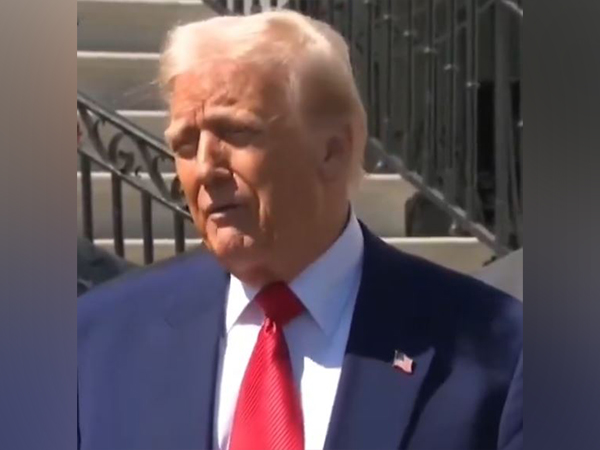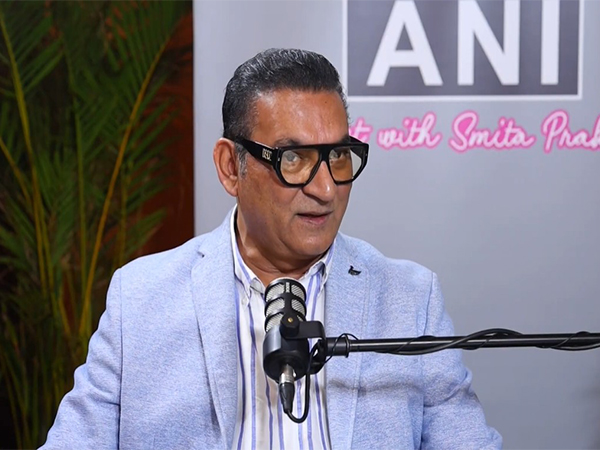China seeking to unilaterally alter status quo along LAC has led to deterioration in ties: Foreign Secretary Shringla
Nov 03, 2020

London [UK], November 3 : China's unusual step of seeking to unilaterally alter the status quo along LAC in eastern Ladakh has led to "deterioration of ties" between the two countries, Foreign Secretary Harsh V Shringla said on Tuesday and noted that India stands resolute in its resolve "not to allow its territorial integrity or sovereignty to be compromised".
In an interview with DW News, Shringla also said that India, US relations are "based on bipartisan support" and will not be impacted by the outcome of US elections. He said the two countries have forged a relationship that has withstood the test of time is very comprehensive and multifaceted.
The Foreign Secretary hit out at Pakistan government over query related to remarks of Prime Minister Imran Khan, saying it is clearly an attempt to distract international attention and domestic attention from his own problems.
He said there is no "common perception" of the India-China border but if an attempt is made to change "where the current line of troops is", it impacts the larger relationship. He expressed concern over steps taken by China along the Line of Actual Control (LAC) in Ladakh.
"It has contributed to the deterioration of ties between our two countries because of the unusual step of China to seek to unilaterally alter the status quo," he said in answer to a query.
"You have to keep in mind that there is no common perception of the border, but if you seek to change where the current line of troops are then it, of course, does impact the larger relationship. We are concerned that China has taken the step. We are very, very clear that we will stand firm and resolute in our resolve not to allow our territorial integrity or sovereignty to be compromised," he said.
Answering a query related to Hong Kong, the Foreign Secretary said, "as a matter of policy we don't comment on what becomes the internal affairs of states."
"We have said that there is a large community of Indian origin in Hong Kong so we are watching the situation with some level of attention and concern and we will continue to do so," he said.
Asked about Quad, he said the grouping is essentially working to "bolster the capacities and abilities of countries in the Indo-Pacific with ASEAN as its centrality in a manner that is both constructive and cooperative".
"Quad is a grouping of countries which have the same vision of a free open transparent Indo-Pacific region and international rules-based order, international freedom of navigation in global commons and also issues such as open connectivity, respecting the sovereignty and territorial integrity of states," he said.
Quad is a grouping of four democratic countries - India, US, Japan and Australia
Asked about India's reaction to Pakistan Prime Minister Imran Khan, who had called India a "fascist state inspired by the Nazist regime" in an interview, Shringla said, "considering his situation and Pakistan's own approach towards radicalism, terrorism and issues that are important to the international community, he really shouldn't be making such irresponsible statements".
He said the remarks had come from Prime Minister of a country "that does not recognise the state of Israel, that till now does not acknowledge that the Holocaust took place, that has placed safe sanctuary for Osama Bin Laden and Mullah Omar of the Taliban."
"Years after 9/11, it (Pakistan) is a country that has a debt that is higher than its GDP, a country that has enormous socio-economic and political problems with an entire coalition party seeking to unseat Prime Minister Imran Khan and those who back him from the deep state. It is clearly an attempt to distract international attention and domestic attention from his own problems," the Foreign Secretary said.
Speaking on the future of India's relationship with the United States, he said that the ties will remain the same no matter who wins the presidential elections.
"Democratic candidate Joe Biden also has made it clear in many of his statements that he values a strong India-US strategic partnership. This is common to both President Trump and Biden," he said.
Shringla also said that India-US relations are "based on bipartisan support -- you see it in the Congress and at the public levels".
"We do believe that we have forged a relationship that has withstood the test of time is very comprehensive and multifaceted. We not only share the same values and principles but we also have in strategic vision in what could be a bilateral regional or multilateral relationship. PM Narendra Modi's relationship with President Trump has been special but you have to remember that his relationship with President Obama was also very special," he added.


















